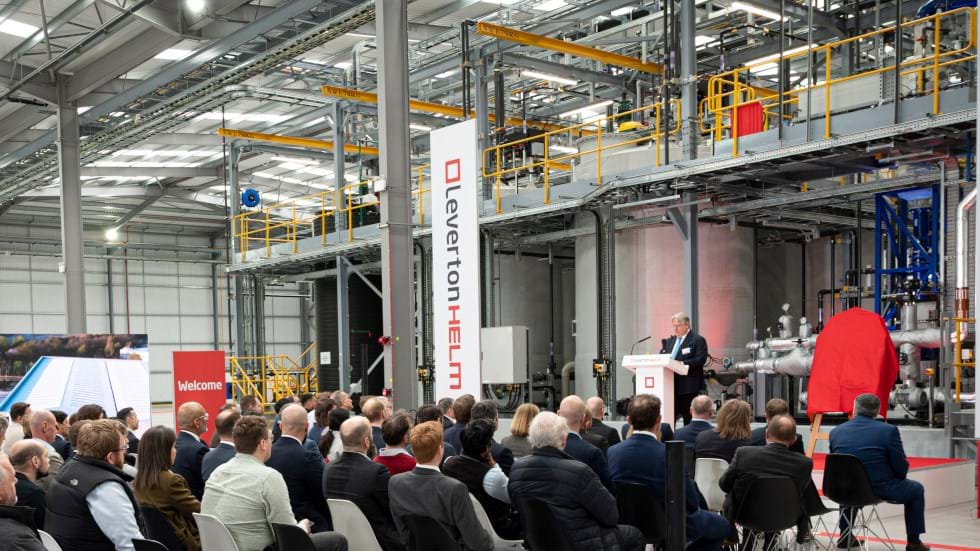LevertonHelm opens £35m lithium chloride plant

LEVERTONHELM has opened a new £30m (US$40m) lithium chloride production plant in Basingstoke, UK which it says will help improve supplies of a key precursor for electric vehicle batteries.
The 10,000 t/y plant reacts lithium carbonate imported from South America with hydrochloric acid, producing a 40% solution of lithium chloride. The company says the facility is the largest lithium chloride plant in Europe.
LevertonHelm is increasing production in response to growing demand for electric vehicle batteries. Lithium chloride is used as an electrolyte component in today’s lithium-ion batteries. Its existing UK manufacturing capacity is 3,000 t/y.
“We are securing processing capacity in Europe and especially in the UK for a crucial element which is essential in the production of every EV,” said Stephan Schnabel, CEO of LevertonHelm’s parent company.
On the sidelines of the plant’s inauguration ceremony, the company’s CTO Fernando Bautista-Parra said he expects the development of next generation solid state batteries will create even more demand for lithium chloride.
The new plant was designed by consultancy OLG and employs 76 people. On a tour of the plant, the production supervisor explained that the process is a scaled-up version of a smaller, manually operated operation running at an older site in Basingstoke. He said greater automation and the addition of equipment including pH probes and inline densometers is helping speed up the processes. The plant is currently being commissioned ahead of full production starting up in June.
Ian Palmer, UK operations and engineering director, added: “We’re doing it on a bigger scale with newer equipment, which is more efficient and cost effective.”
He added that the company has put a lot of attention into the safety and environmental aspects of the facility and that the local water company wants others to visit the plant “to show them what good looks like”.
Lithium demand is projected to rise rapidly as more people buy electric cars and country’s turn to grid-scale storage to balance out growing use of intermittent renewable power. While three countries – Australia, Chile, and China – account for around 90% of lithium production, around 60% of midstream processing capacity is concentrated in China. Escalating trade tariffs and China’s recent halt to exports of critical minerals are doing little to dampen fears that supply shocks could see countries miss their climate targets. The UK’s Critical Minerals Intelligence Centre listed lithium supplies as high risk, warning the UK could need as much as 40% of global supplies by 2030 to meet domestic demand.
Efforts are underway to produce lithium in the UK. Earlier this year, Weardale Lithium and Cornish Lithium were separately given permission to build plants to demonstrate they could produce lithium from geothermal brines.
Asked whether LevertonHelm could use lithium from those sources, Palmer said: “If it’s lithium carbonate, there’s no reason why we can’t. Something like Cornish Lithium would be amazing or Tees Valley Lithium. If we can keep it in the UK, I’m all for that but it’s got to be at the right price.
“If we pay more for UK stock than we are for stock coming from Chile or China, then it’s not going to work.”
He said the UK government may need to think about subsidisation to support the development of a domestic critical minerals industry.
Recent Editions
Catch up on the latest news, views and jobs from The Chemical Engineer. Below are the four latest issues. View a wider selection of the archive from within the Magazine section of this site.




